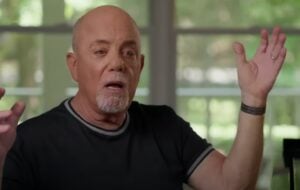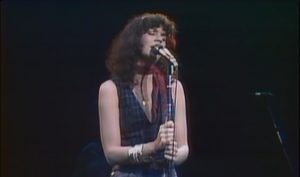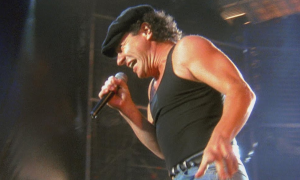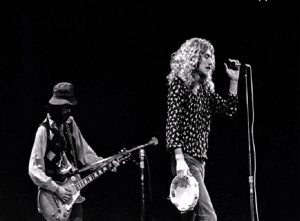Paul McCartney Pulled An Irritating Stunt Just To Trigger John Lennon
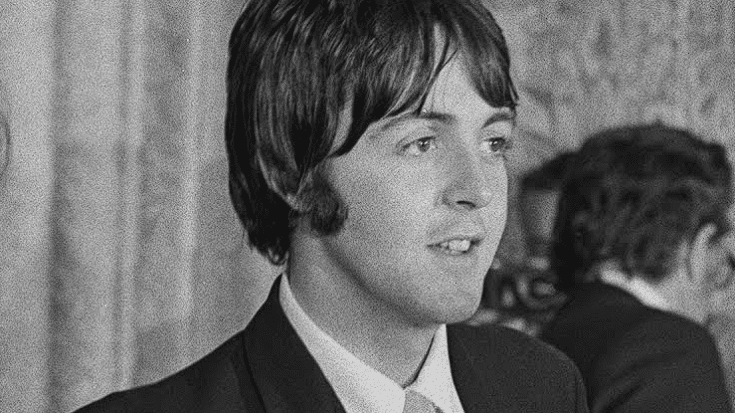
via The Howard Stern Show / Youtube
The Beatles’ self-titled 1968 outing, more popularly known as the White Album, has been hailed as one of the best albums of all time. The praises were abundant when it first came out, but the reviews decades later celebrated the album even more; a testament to the Beatles’ music being ahead of its time.
But the album’s recording sessions were also famous as the start of the fall of the Beatles with incidents such as Yoko Ono intruding into their formerly very private sessions; the band members fighting more intensely prompting Ringo Starr to leave the band for two weeks; the Beatles’ long-time producer and collaborator George Martin suddenly taking an unannounced holiday; and studio engineer Geoff Emerick quitting mid-album due to frustration.
#BeatlesWhiteAlbum “While we were recording the ‘White’ album we ended up being more of a band again, and that’s what I always love. I love being in a band” – Ringo pic.twitter.com/LwtsK2PSW0
— The Beatles (@thebeatles) November 1, 2018
The intensity of the atmosphere was particularly felt during the recording of the songs “Revolution” and “Ob-La-Di, Ob-La-Da”, John Lennon and Paul McCartney’s mini-passion projects, respectively.
“Ob-La-Di, Ob-La-Da” is said to have pissed all of them, with Lennon being the most vocal about his dislike of the song, calling it “more of Paul’s ‘granny music shit'”. The tiresomely repetitive recording sessions of the song also made Emerick quit after a verbal tussle between McCartney and the usually calm Martin.
The fascinating lore surrounding the iconic Beatles song has always been one of the talking points about White Album’s sonically magical rarity, as well as the eventual downfall of the world’s most influential band.
Ridiculous recording session
In his book Here, There and Everywhere: My Life Recording the Music of the Beatles, engineer Emerick recounts the intense dynamics surrounding the song “Ob-La-Di, Ob-La-Da.” According to Emerick, John Lennon openly expressed his strong aversion to the song and visibly showed his disdain by rolling his eyes during frequent rehearsals.
Paul McCartney, however, persisted in making the band rehearse the song repeatedly in pursuit of perfection, which only served to escalate Lennon’s frustration.
As the summer of 1968 progressed, Martin and the band members found themselves spending increasingly extensive hours in the recording studio. Amidst the multitude of songs attempted that summer, it became evident that “Ob-La-Di, Ob-La-Da” unveiled the inherent constraints of the meticulous rehearsal and recording methods employed by the group.
Paul McCartney and George Martin the #Beatles
We’re now on instagram. follow us!https://t.co/a8W4Srfckz pic.twitter.com/nBPule4hZT
— The Beatles Photos (@TheBeatlesPix) December 8, 2022
In the following days, the newly penned song underwent a series of successive reiterations as McCartney and his fellow Beatles gradually moved closer to realizing his envisioned rendition. By July 5, Paul embarked on a reggae-infused interpretation of the song, with George promptly enlisting a trio of saxophonists and a bongo player for the session.
Paul’s creative process appeared intentionally eccentric as he requested a piccolo overlay later that same evening, only to swiftly eliminate it from the mix shortly thereafter. Before concluding the session, the Beatle opted to replace the woodwind component with a guitar overdub.
However, according to producer Chris Thomas, the addition of the guitar seemed perplexing, as “Paul deliberately amplified the sound through the console, creating a bass-like effect.”
Observing this, Emerick began to speculate whether McCartney was intentionally provoking Lennon with his meticulous approach to the song. The lack of respect that Lennon displayed further fueled Emerick’s contemplations.
Lennon forcefully completing the song
Emerick believed that McCartney’s pursuit of perfection might have been fueled not only by his own perfectionism but also by his dissatisfaction with Lennon’s behavior. This notion led Emerick to consider the possibility that McCartney might have been deliberately attempting to irritate Lennon, possibly as a way of teaching him a lesson.
Our thoughts are with the family and friends of Geoff Emerick, who has sadly passed. Geoff’s work as audio engineer on their music was integral, resulting in multiple highly deserved Grammy Awards. pic.twitter.com/PWKO5i2EIc
— The Beatles (@thebeatles) October 3, 2018
By July 8th, Lennon’s frustration with the song had escalated to the point where he entered the studio under the influence of drugs. Surprisingly, this unconventional approach turned out to be precisely what the song required.
Emerick’s fellow EMI sound engineer Richard Lush, recounting the episode in The Complete Beatles Recording Sessions, shared that Lennon arrived at the session significantly intoxicated and immediately declared, “‘All right, we’re gonna do ‘Ob-La-Di, Ob-La-Da.'”
The intoxicated Beatle proceeded to forcefully strike the piano keys, accelerating the tempo to twice its previous rate, and declared, “‘This is it! Come on!'”
“He was really aggravated. That was the version they ended up using,” Lush recounted how McCartney finally ended.
“While we were recording the ‘White’ album we ended up being more of a band again, and that’s what I always love. I love being in a band.” – Ringo pic.twitter.com/AZMhafSEPI
— The Beatles (@thebeatles) October 29, 2019
Paul McCartney, on the other hand, provides an alternate perspective. During a 2018 interview with Howard Stern, McCartney countered the notion that Lennon despised “Ob-La-Di, Ob-La-Da”. McCartney questioned, “Who says?” before asserting, “John did like that song.”
McCartney proceeded to say that the creation of the song was a collaborative endeavor. “I wrote the song and one thing I always love about the intro there is the piano intro,” Macca highlighted the piano introduction as a specific point of interest, and interestingly, this was the section Lennon supposedly disliked the most.
Nonetheless, McCartney argued that if Lennon had genuinely detested it, he likely would have allowed McCartney to complete the song independently. Instead, Lennon chose to participate, contributing the now-iconic piano riff. McCartney described how the band rallied behind Lennon’s initiative, affirming, “‘Yes!’ That’s what it needed.”
Life goes on, bra
Composed upon Paul’s return from India in 1968, “Ob-La-Di Ob-La-Da” drew its inspiration from a cherished phrase belonging to his Nigerian friend, Jimmy Anonmuogharan Scott Emuakpor.
McCartney reminisced about this in Anthology, stating, “I had a friend called Jimmy Scott who was a Nigerian conga player, who I used to meet in the clubs in London. He had a few expressions, one of which was, ‘Ob la di ob la da, life goes on, bra’. I used to love this expression… He sounded like a philosopher to me. He was a great guy anyway and I said to him, ‘I really like that expression and I’m thinking of using it,’ and I sent him a cheque in recognition of that fact later because even though I had written the whole song and he didn’t help me, it was his expression.”
Yesterday I wrote about Jimmy Scott Emuakpor, a vague name in music history; but only vague because the world’s first superstar group, The Beatles, cheated him out of something that was rightfully his: publishing credit. pic.twitter.com/OrSzr6sWs6
— The Jídé Taiwo (@thejidetaiwo) November 16, 2021
After the release of the song in November 1968, Scott made a claim for a songwriter credit based on his catchphrase. McCartney countered by asserting that the phrase was merely “an expression.” Scott, however, contended that it was not a commonly used expression and was unique to the Scott-Emuakpor family.
A dispute arose, further fueled by the British media’s alignment with Scott’s perspective. Notably, during the Beatles’ filmed rehearsals at Twickenham Film Studios in January 1969, tape recordings reveal McCartney expressing his frustration to his fellow band members regarding Scott’s assertion that he had “stolen” the phrase.
Although McCartney did send Scott money, it wasn’t until the latter promised not to pursue a cut from them, as well as songwriting credits for his expression. In 1969, while incarcerated at Brixton Prison awaiting trial for failing to provide spousal support, Scott reached out to the Beatles, requesting financial assistance for his legal expenses.
Scott was actually invited to contribute his conga services during the recording of “Ob-La-Di Ob-La-Da” in July 1968. The version he played on, though, was scrapped in favor of the song’s full remake.
It was also said that McCartney borrowed Scott’s wisdom more by borrowing one of his expressions as the title for the 1993 song “Nothing Too Much Just Out of Sight” by the former’s experimental duo act with Youth called the Fireman.






